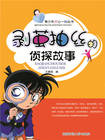"Then there you are." But Maggie had turned away, moving to the window as if still to keep something in her face from sight. She stood there with her eyes on the street while Mrs. Assingham's reverted to that complicating object on the chimney as to which her condition, so oddly even to herself, (177) was that both of recurrent wonder and recurrent protest. She went over to it, looked at it afresh and yielded now to her impulse to feel it in her hands. She laid them on it, lifting it up, and was surprised thus with the weight of it--she had seldom handled so much massive gold.
That effect itself somehow prompted her to further ******* and presently to saying: "I don't believe in this, you know."
It brought Maggie round to her. "Don't believe in it? You will when I tell you."
"Ah tell me nothing! I won't have it," said Mrs. Assingham. She kept the cup in her hand, held it there in a manner that gave Maggie's attention to her, she saw the next moment, a quality of excited suspense. This suggested to her oddly that she had, with the liberty she was taking, an air of intention, and the impression betrayed by her companion's eyes grew more distinct on the latter's part in a word of warning.
"It's of value, but its value's impaired, I've learned, by a crack."
"A crack?--in the gold--?"
"It is n't gold." With which, Maggie somewhat strangely smiled. "That's the point."
"What is it then?"
"It's glass--and cracked, under the gilt, as I say, at that."
"Glass?--of this weight?"
"Well," said Maggie, "it's crystal--and was once I suppose precious.
But what," she then asked, "do you mean to do with it?"
She had come away from her window, one of the (178) three by which the wide room, enjoying an advantageous "back," commanded the western sky and caught a glimpse of the evening flush; while Mrs. Assingham, possessed of the bowl and possessed too of this indication of a flaw, approached another for the benefit of the slowly-fading light. Here, thumbing the singular piece, weighing it, turning it over and growing suddenly more conscious, above all, of an irresistible impulse, she presently spoke again.
"A crack? Then your whole idea has a crack."
Maggie, by this time at some distance from her, waited a moment. "If you mean by my idea the knowledge that has come to me that--"
But Fanny, with decision, had already taken her up. "There's only one knowledge that concerns us--one fact with which we can have anything to do."
"Which one then?"
"The fact that your husband has never, never, never--!" But the very gravity of this statement, while she raised her eyes to her friend across the room, made her for an instant hang fire.
"Well, never what?"
"Never been half so interested in you as now. But don't you, my dear, really feel it?"
Maggie took her time. "Oh I think what I've told you helps me to feel it. His having to-day given up even his forms; his keeping away from me; his not having come." And she shook her head as against all easy glosses.
"It IS because of that, you know."
"Well, then if it's because of this--!" And Fanny Assingham, who had been casting about her and whose inspiration decidedly had come, raised (179) the cup in her two hands, raised it positively above her head and from under it solemnly smiled at the Princess as a signal of intention.
So for an instant, full of her thought and of her act, she held the precious vessel, and then with due note taken of the margin of the polished floor, bare fine and hard in the embrasure of her window, dashed it boldly to the ground, where she had the thrill of seeing it lie shattered with the violence of the crash. She had flushed with the force of her effort as Maggie had flushed with wonder at the sight, and this high reflexion in their faces was all that passed between them for a minute more. After which, "Whatever you meant by it--and I don't want to know NOW--has ceased to exist," Mrs. Assingham said.
"And what in the world, my dear, DID you mean by it?" That clear vibration of the touched spring rang out as the first effect of Fanny's speech. It broke upon the two women's absorption with a sharpness almost equal to the smash of the crystal, for the door of the room had been opened by the Prince without their taking heed. He had apparently had time moreover to catch the conclusion of Fanny's act; his eyes attached themselves, through the large space allowing just there, as happened, a free view, to the shining fragments at this lady's feet. His question had been addressed to his wife, but he moved his eyes immediately afterwards to those of her visitor, whose own then held them in a manner of which neither party had been capable, doubtless, for mute penetration, since the hour spent by him in Cadogan Place on the eve of his marriage and the (180) afternoon of Charlotte's reappearance. Something now again became possible for these communicants under the intensity of their pressure, something that took up that tale and that might have been a redemption of pledges then exchanged. This rapid play of suppressed appeal and disguised response lasted indeed long enough for more results than one; quite enough for Mrs. Assingham to measure the feat of quick self-recovery, possibly therefore of recognition still more immediate, accompanying Amerigo's vision and estimate of the evidence with which she had been--so admirably, she felt as she looked at him--inspired to deal. She looked at him and looked at him--there were so many things she wanted on the spot to say. But Maggie was looking too--and was moreover looking at them both; so that these things, for the elder woman, very quickly reduced themselves to one. She met his question--not too late, since it had by their silence remained in the air. Gathering herself to go, leaving the golden bowl split into three pieces on the ground, she simply referred him to his wife. She should see them later, they would all meet soon again; and meanwhile, as to what Maggie had meant--she said, in her turn, from the door--why Maggie herself was doubtless by this time ready to tell him.















